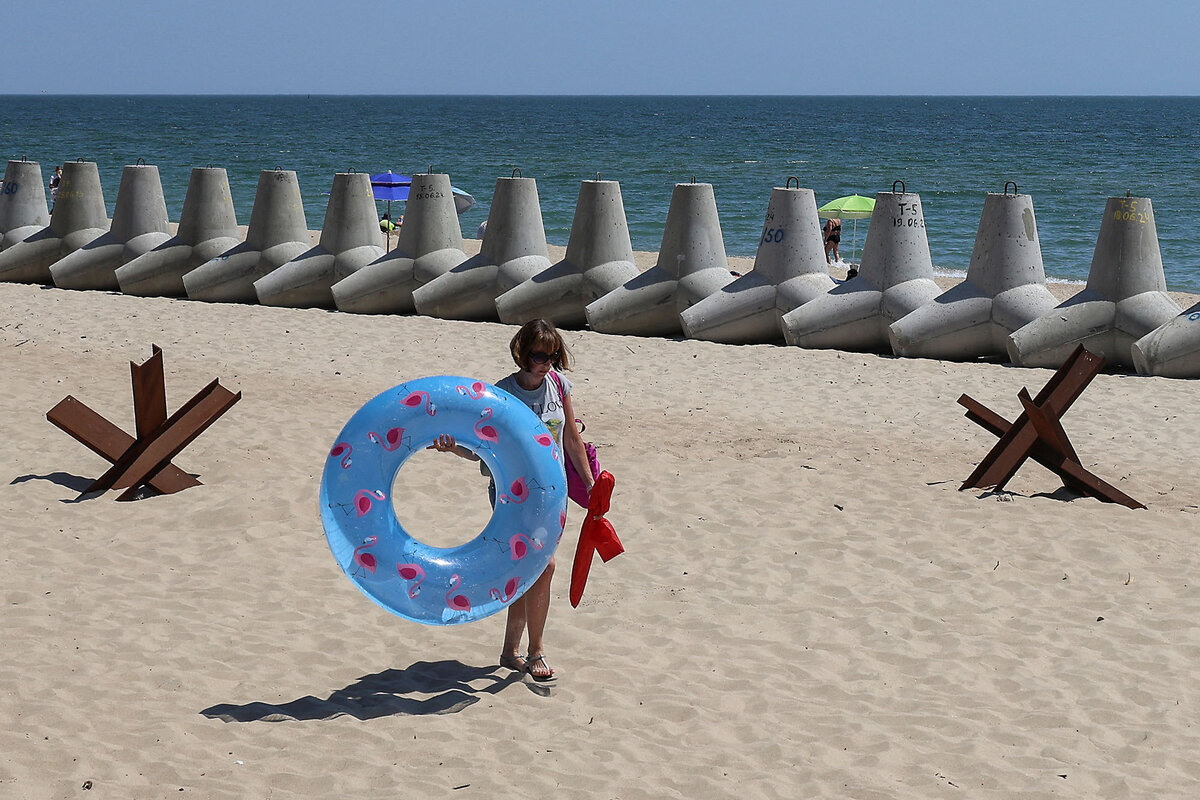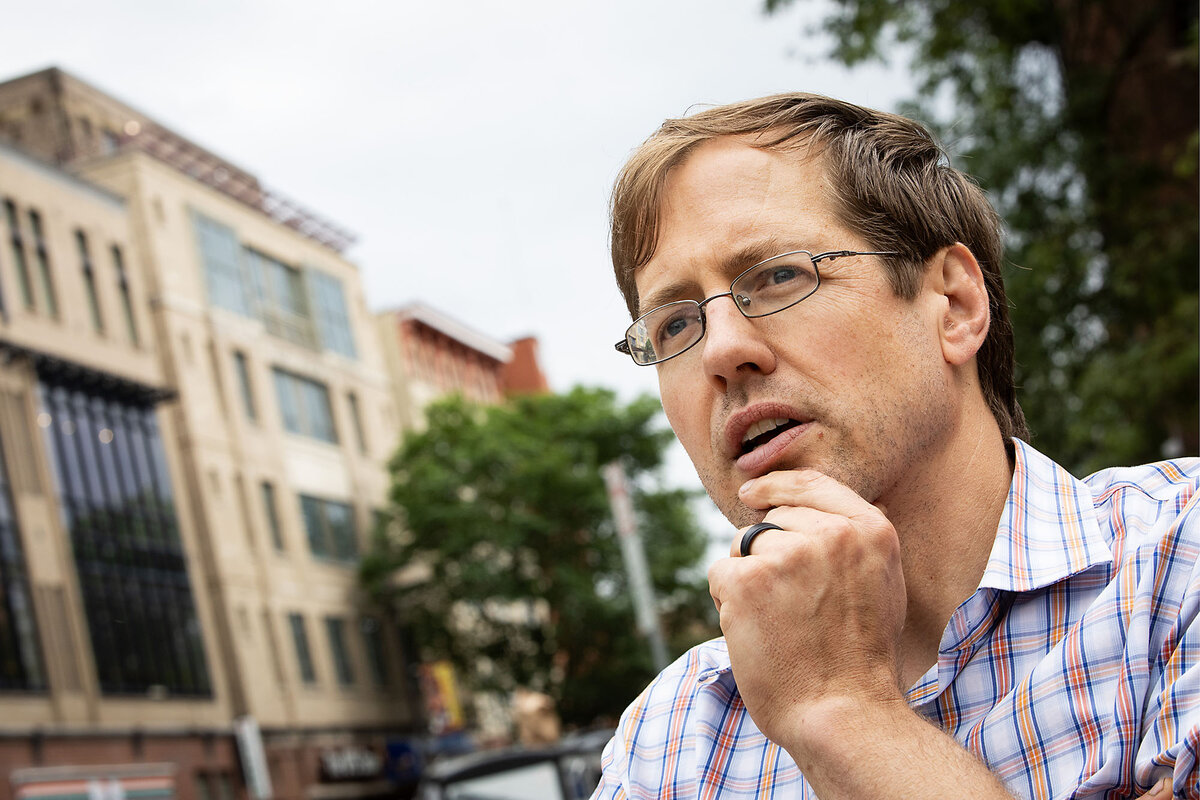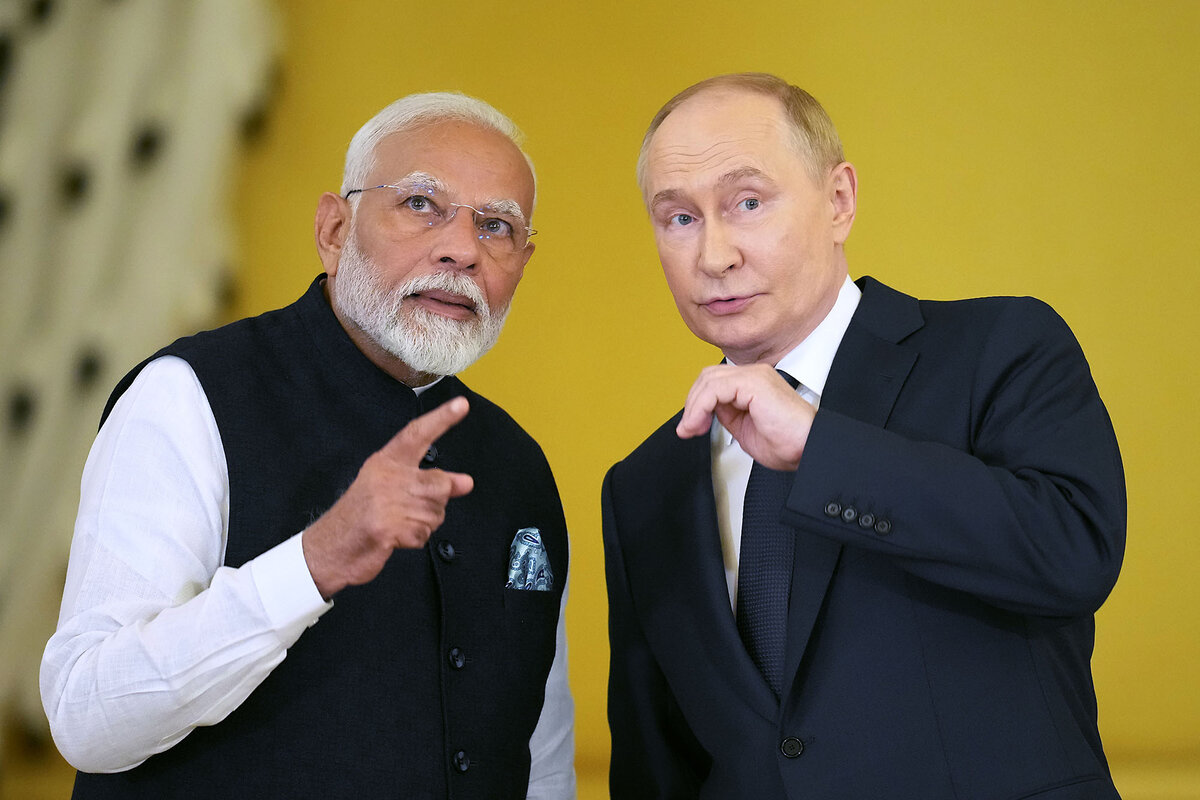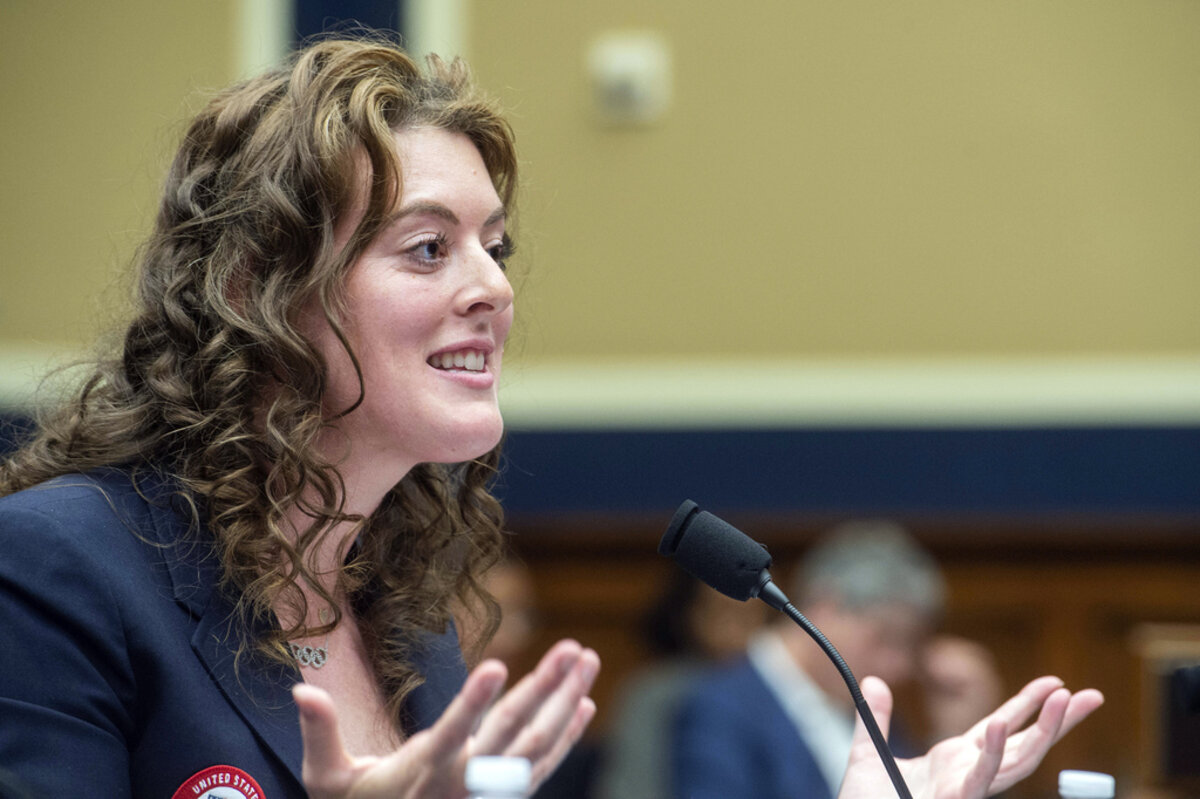Portland became famous for a failed drug decriminalization measure. But on a fact-finding trip, the two sides found themselves doing something they rarely did: talking. Out of that, a promising pilot program was born. Part 1 of a series.

Why is Christian Science in our name?
Our name is about honesty. The Monitor is owned by The Christian Science Church, and we’ve always been transparent about that.
The Church publishes the Monitor because it sees good journalism as vital to progress in the world. Since 1908, we’ve aimed “to injure no man, but to bless all mankind,” as our founder, Mary Baker Eddy, put it.
Here, you’ll find award-winning journalism not driven by commercial influences – a news organization that takes seriously its mission to uplift the world by seeking solutions and finding reasons for credible hope.
Explore values journalism About usMonitor Daily Podcast
- Follow us:
- Apple Podcasts
- Spotify
- RSS Feed
- Download
 Mark Sappenfield
Mark Sappenfield
This morning, we learned that Christa Case Bryant’s coverage of Washington has won a Sigma Delta Chi Award from the Society of Professional Journalists. The awards were established in 1932 and had more than 1,200 entrants across all categories. They’re among the most prestigious awards in American journalism.
Christa won for being different. From looking at Jan. 6 security to the Biden administration’s COVID-19 response to one senator’s Instagram quest, Christa broke through partisan narratives to look at the issues in a new light. One judge said her work was an “eye-opening” exploration of “the problems of government bureaucracy.”
It’s a wonderful recognition not only of the Monitor’s quality, but also of our commitment to seeing the world differently.
Already a subscriber? Log in
Help fund Monitor journalism for $11/ month
Monitor journalism changes lives because we open that too-small box that most people think they live in. We believe news can and should expand a sense of identity and possibility beyond narrow conventional expectations.
Our work isn't possible without your support.
Today’s stories
And why we wrote them
( 10 min. read )
Today’s news briefs
• Ukraine pledge: U.S. President Joe Biden pledges at the NATO summit in Washington to forcefully defend Ukraine.
• Houthi attack: A suspected attack by Yemen’s Houthi rebels is their longest-range attack yet on a U.S.-flagged vessel, according to authorities.
• Gaza evacuation plea: The Israeli military urges all Palestinians to leave Gaza City and head south. The evacuation orders indicate that Israel is pressing ahead with a fresh offensive.
( 7 min. read )
Democrats on Capitol Hill are divided and demoralized. Many believe President Joe Biden is on track to lose, but there’s no consensus about what to do – and plenty of risk in a confrontation with the presumptive nominee.
( 6 min. read )
Ithaca, New York, set one of the most ambitious climate goals in the United States in 2019. Since then, the city has learned how to press on when faced with setbacks.
( 5 min. read )
India-Russia ties seem as strong as ever after Prime Minister Narendra Modi and President Vladimir Putin spent two days together in Moscow. But for India, experts say, the trip was really about asserting independence.
( 2 min. read )
Some people seek out thrills, and others provide them. In India, stunt drivers ensure that audiences feel an adrenaline rush from death-defying performances.
The Monitor's View
( 2 min. read )
On the eve of the 2024 Summer Olympics, many world-class athletes are tracking the latest scandal over the alleged use of performance-enhancing drugs. The World Anti-Doping Agency recently gave an all clear to 11 Chinese swimmers to compete in their events in Paris even though they had tested positive for a banned substance in 2021. The agency itself is now under investigation by the U.S. Justice Department.
Yet top athletes are doing more than merely watching. They are speaking out and organizing to ensure integrity in sports remains the global norm.
“As an athlete you want to be treated fairly and [have] full transparency and make sure that in those cases those results [positive test] are not hidden and they’re not put under secrecy,” said Adam Peaty, a British breaststroke champion.
An international activist group, Global Athlete, reported last year that thousands of athletes participated in calls for probes or bans of athletes suspected of doping. The funder of the group, FairSport, says the goal is to “create a global conversation about the necessity of fair and clean sport, and to grow a movement towards violation-free sport throughout the world.”
This “clean athletics” activism relies on athletes being open and honest about their training and the ups and downs of their sports careers – including any lying or cheating. The head of the U.S. Anti-Doping Agency, Travis Tygart, told a congressional hearing last month, “We view athletes – and their powerful stories – as USADA’s guiding light, our North Star. Their stories give us hope, they remind us of our purpose, and they provide us the fuel to continue to advocate for their right to clean and fair competition.”
Leaders of this movement say it relies on respect for one’s self, other athletes, and the sport itself. “Foundational to the Olympics is the trust that clean athletes, both aspiring and current Olympians, have in the system to keep cheaters out,” stated Rep. Morgan Griffith, chair of the House subcommittee that held the hearing on doping in June.
Sport unifies people through creativity, ingenuity, and perseverance. Every honest athlete possesses and appreciates these qualities in competitors. They know the long hours, the talent, and the support from others that it takes to become Olympic-level great. It is worth celebrating every athlete on the podium, behind a microphone, or at a board table making sure sports stay clean.
“If we win, let it be because we earned it,” Allison Schmitt, a four-time Olympic gold medalist in swimming, told lawmakers. “And if we lose, let it be because the competition was fair.”
A Christian Science Perspective
Each weekday, the Monitor includes one clearly labeled religious article offering spiritual insight on contemporary issues, including the news. The publication – in its various forms – is produced for anyone who cares about the progress of the human endeavor around the world and seeks news reported with compassion, intelligence, and an essentially constructive lens. For many, that caring has religious roots. For many, it does not. The Monitor has always embraced both audiences. The Monitor is owned by a church – The First Church of Christ, Scientist, in Boston – whose founder was concerned with both the state of the world and the quality of available news.
( 3 min. read )
Holding to the spiritual reality of God’s goodness and supremacy enables us to overcome difficulties, as a man experienced after injuring his leg playing basketball.
Viewfinder

A look ahead
Thank you for joining us today. Please come back tomorrow, when Taylor Luck looks at what Hamas wants. Perhaps not surprisingly, it really has no interest in governing Gaza.








